Many people love to adopt cats and enjoy spending their evenings cuddling with their furball. But roughly estimated, every 3 in 10 people are allergic to cats. Some of the symptoms may include hives, sneezing, and itchy or swollen eyes. This can be a heartbreaking situation for cat lovers, who might be planning to bring home a furry fellow.
While the term hypoallergenic cats are disregarded by many, there is still some hope for people who want to try everything for the love of cats. Although no cat breed completely fits in the description of being hypoallergenic, some cat breeds are known to be producing fewer allergens.
Before we go into the details of hypoallergenic cat breeds, it is important to know what makes certain cats partially hypoallergenic for their owners. So, read on to find out more.
Factors Involved in Feline Related Allergies
As no cat breed is completely hypoallergenic, two factors make a cat breed less allergenic than others. These factors are as follow.
Less Fel D1 Protein Production
The main culprit behind feline allergies comes down to a type of protein present in the cat’s saliva, urine, and on her skin. This protein is named Fel D1. When a cat licks her skin and fur for grooming herself, she transfers this protein from her saliva to the skin. This protein then clings onto your hands when you touch your cat.
Less Shedding
A cat that sheds less is often considered safe around people with allergies. This is because when a cat sheds less, there is less airborne Fel D1 protein.
Sensitive Immune System
People with a sensitive immune system are prone to become allergic to many things which are harmless to other people. This is because their immune system mistakes harmless things like cat dander as dangerous outsiders and responds by attacking and fighting them.
Which One is the Best Cat for People Prone to Allergies?
Finding out what makes you allergic to cats first can make it easy for you to find a suitable cat for yourself accordingly. Below, we have listed down 10 non-allergic cats, so you can learn about each breed in detail.
Siberian Cats
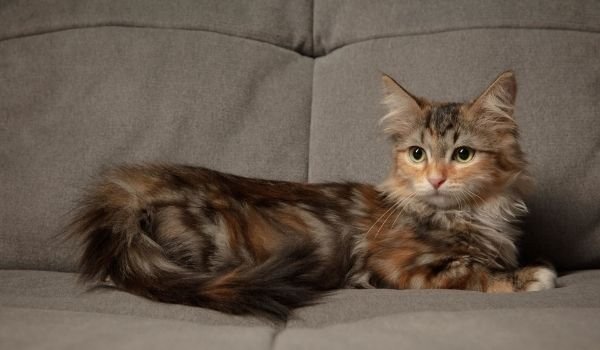
Siberian cats are native to Siberia, Russia. This region is known for its long and harsh winter weather. Even though Siberian cats have long hair coats, they are considered hypoallergenic because of the low Fel D1 protein production.
They are known to be very affectionate and playful who mature slowly, which means Siberian cats take longer than others to reach adulthood.
Balinese
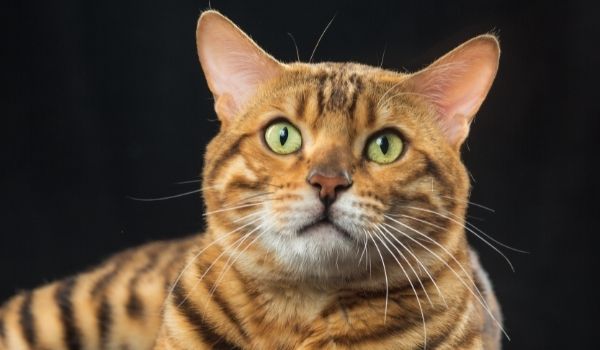
The Balinese cats, like Siberian cats, shed less and are also considered hypoallergenic, as they too produce a little amount of Fel D1 protein. Balinese cats are popularly known for their intelligence. They are very affectionate, loyal, and friendly. These highly social and vocal cats are also known for their ability to sense your mood and their willingness to cheer you up when you are not in your best mood. Thus, the Balinese breed can be the best cat for people prone to allergies as well as their mood.
Burmese
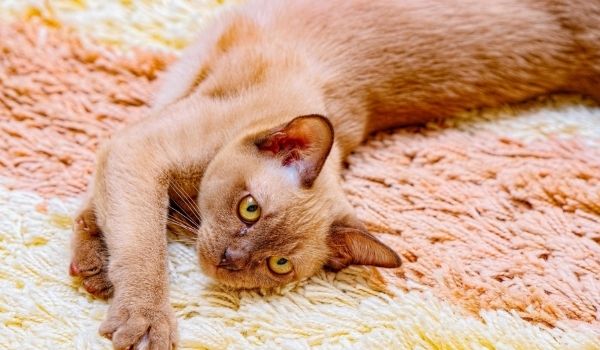
The Burmese are domestic cats, believed to have their roots near the Thai-Burma border. Apart from being friendly and charming, these cats have short coats, which makes them fall under the category of hypoallergenic cats. They are considered safe for people with overly sensitive immune systems.
Cornish Rex
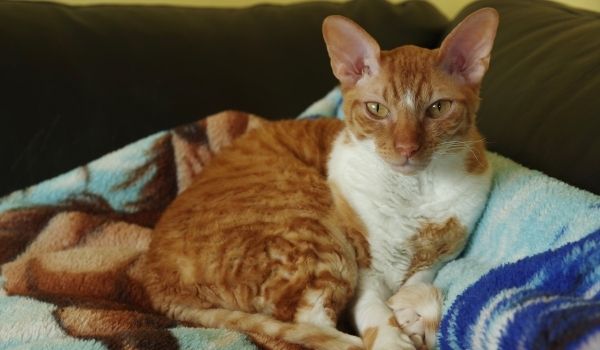
Cornish Rex cats are for people who love to have an active lifestyle. They are highly energetic, have slender bodies but are strong and sturdy. They have a short, curly coat which makes them a good choice for people with allergies.
The Cornish Rex is also known to shed less than other cat breeds. As they are vocal and sociable, they may not be for people who prefer a peaceful environment at home.
Devon Rex
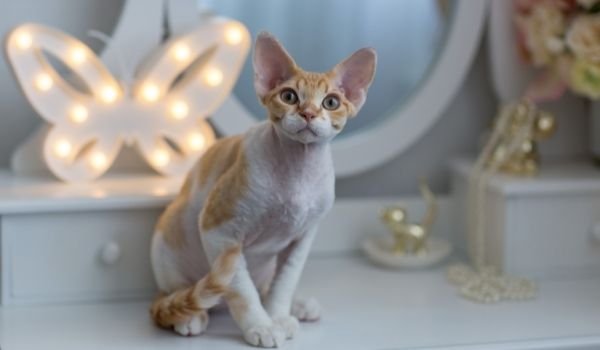
The Devon Rex cats are popular for their innocent-looking features and wavy, dense coat. They are also very playful and sociable. Technically, this breed doesn’t fit in the category of hypoallergenic cats because they shed. However, their wavy and dense coat leaves behind less hair. They are intelligent, affectionate, and friendly.
They are not aggressive but can sometimes be demanding. The Devon Rexes love to cuddle their pet parents and goof around them.
Ocicat
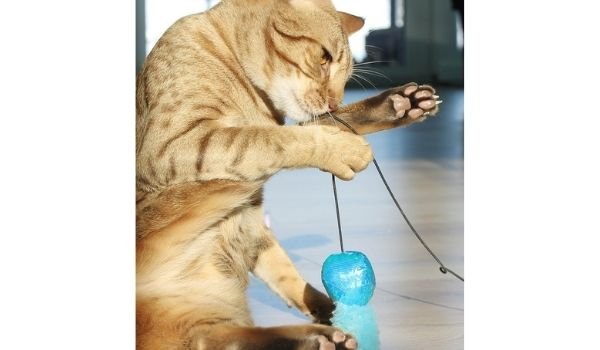
The Ocicat cats are large and wild. They have a muscular and athletic build. These cats are very social and friendly towards other pets in the house, making them an ideal choice for people with several pets. This breed is also very adaptable and for this reason, they are preferred by people who travel a lot. Although Ocicats shed more than other breeds, the hair fall can be managed well by a weekly brushing session.
Oriental Shorthair
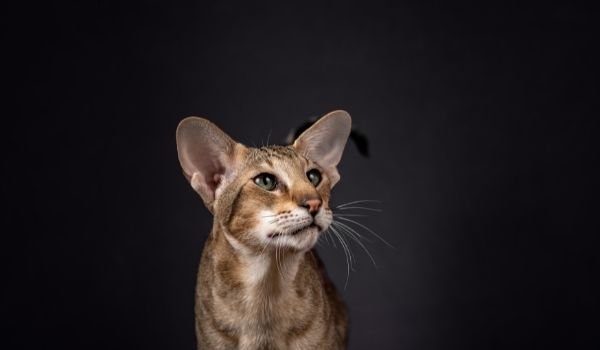
As the name indicates, Oriental Shorthair cats have short hair. They can be found in any color and hue, like lavender, blue, ebony, sable cinnamon, beige, orange, and white. These cats are social, intelligent, and somewhat talkative. They love to follow you around and know everything you are doing.
They are very friendly and affectionate towards their family and other furry fellows. With their short, silky, and shiny coat, they can be a good choice for people with allergies.
Russian Blue Cat
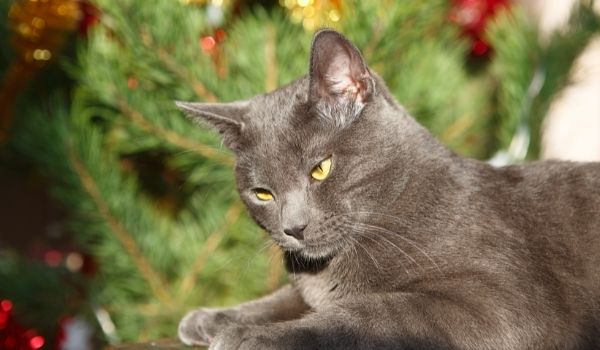
These cats are popular for their gorgeous eye color, which changes from yellow to green. They are born with golden or light yellow eyes that turn bright green in adulthood. These cats are sweet and loving but are also shy and cautious. They take some time to adjust to new environments, but once they do, they become very playful and friendly. With its dense, short coat, less shedding, and lower levels of feline allergens, this is considered the best cat for people prone to allergies.
Siamese
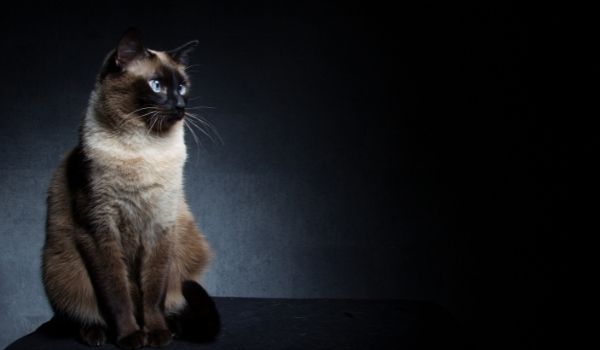
The Siamese are known as outgoing, friendly, and affectionate cats. They are intelligent and are good-looking as well. Their piercing blue eyes are instantly noticeable. With their short and light coat that doesn’t shed excessively, Siamese is an ideal choice for people with allergies.
Sphynx
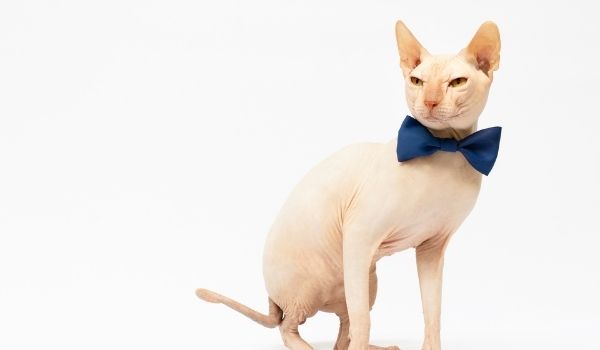
The last breed that comes under the category of hypoallergenic cats is the Sphynx. This breed is easily recognizable because of its natural baldness. These cats are funny by nature, intelligent and friendly. Although they have a rounded belly, their overall built is athletic, making them very active. As they are almost hairless, this breed is considered one of the best options for people prone to allergies.
Tips for Cat Owners with Allergies
Apart from adopting a hypoallergenic cat, there are other things you can do to manage your allergies around your cats.
- Keep your house clean. Regularly vacuuming your carpets and air drying your bed linens, cushions, and pillows can help you remove allergens lingering in your house.
- Keep your cats out of your rooms and if possible, create a cat-free zone in your house.
- Let fresh air in through the doors and windows of your house.
- Ask someone else to bathe or brush your cat for you if you are allergic to her dander.
- Play with care, and always remember to wash your hands properly after you play with your cats.
So, it can be safely concluded that there are no 100% hypoallergenic cats or completely non-allergic cats. But, by knowing the cat breeds that shed less or produce less Fed D1 proteins, cat owners can easily manage their allergies around their pets. To be on the safe side, it is always sensible to consult your doctor or a vet before adopting any furry fellow.
